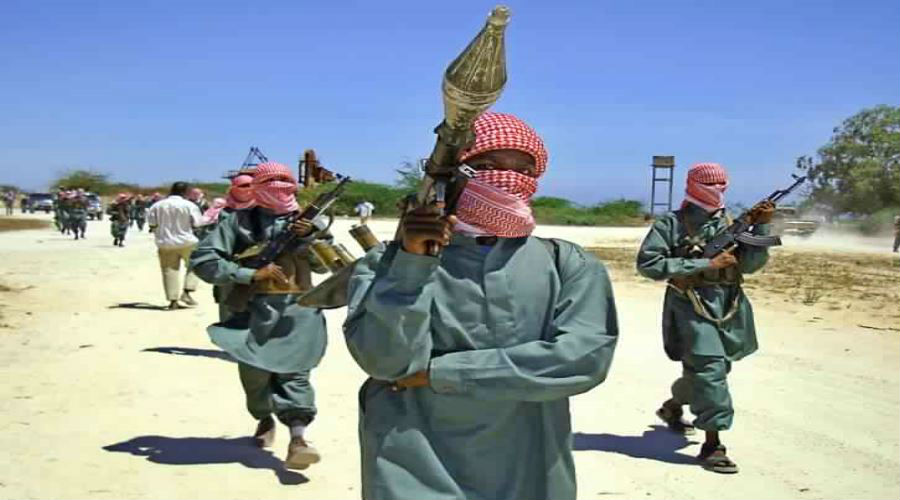Terrorist groups loyal to al-Qaeda are currently facing immense international pressure, which will likely have considerable repercussions on their internal cohesion and relations with other terrorist organizations. A case in point is Jama’at Nusrat al-Islam wal-Muslimin (JNIM), the largest alliance of al-Qaeda’s affiliates in North and West Africa, which was designated by the US State Department on September 5, 2018, as a foreign terrorist organization, noting that the move seeks to deny JNIM the resources to plan and carry out terrorist attacks. This move will likely reinforce the efforts of regional and international forces involved in combating terrorist organizations in the region.
The Significance of Timing
The US decision comes at a time when the group’s activity is remarkably high, after its alliance with al-Qaeda in the Islamic Maghreb (AQIM), and hence the group and organization are joined at the hip. AQIM has the ability to expand, spread and stage high-profile attacks, such as the attack on the joint military force headquarters in central Mali on June 30, 2018, which left at least six people dead.
The decision comes also in the wake of the French President Emmanuel Macron’s announcement, on August 27, 2018, of his country’s readiness to launch military operations in cooperation with the G5 Sahel Joint Force, which encompasses forces form Mauritania, Mali, Burkina Faso, Chad and Niger. Therefore, the US move will bolster the efforts of those countries to undercut the ability of terrorist organizations to mount further terrorist operations in the region.
Multiple Factors
However, assessing the impact of the recent US decision on the activity of al-Qaeda affiliates in the Sahel-Sahara region hinges on several variables, the most prominent of which are as follows:
1- Tangled web: The Sahel-Sahara region is a major sphere of influence of al-Qaeda, given the organization’s extensive reach, due to its multiple groups and relentless quest to expand in various areas. Foremost among those groups is JNIM, which was announced in March 2017, following the merger of the Sahara Emirate, al-Mourabitun, Ansar al-Dine and the Macina Liberation Front (MLF).
In addition, several al-Qaeda affiliates operate in the mountainous and rugged area between Tunisia and Algeria, such as the Uqba ibn Nafi Brigade, which has recently vowed to continue its attacks against Tunisia, following its assault on the National Guard forces in Jendouba governorate on July 9, 2018. This underscores the need to double down on efforts to eliminate those organizations and sub-groups that have been formed in different regions with the aim of broadening the range of options to cope with the military strikes against them.
2- Exceptional capabilities: Numerous estimates indicate that al-Qaeda groups operating in the Sahel-Sahara region possess exceptional capabilities that enable them to stage large-scale attacks against the government and international forces in the region. Members of those groups can move in the form of small groups, and they are familiar with desert routes and tracks, and hence they can launch high-profile attacks, such as the attack on the military force headquarters in central Mali on June 30, 2018, which left at least 6 people dead. Prior to that attack, a series of coordinated attacks, in March 2018, targeted the headquarters of the Armed Forces in Burkina Faso, the French embassy and the institute in the capital, Ouagadougou, killing 28 people, including four of the attackers.
Accordingly, those estimates highlight the importance of assessing the capabilities of terrorist groups before engaging in armed confrontations with them to enhance the prospects of delivering lethal blows to them to undermine their ability to carry out such operations.
3- Funding sources: Al-Qaeda in the Sahel-Sahara region has been able to secure multiple sources of funding for its terrorist operations by working in illicit trade, such as smuggling drugs and antiquities, smuggling of goods and human smuggling (illegal immigration), which means that delivering crippling blows to it would, in the first place, requires drying up its financial resources, as was the case with ISIS in Syria and Iraq, which has gradually lost its financial resources before the decline of its influence over the areas it controlled.
4- Complex alliances: Al-Qaeda in the Sahel-Sahara region has been keen to have an ethnic backer to help it recruit more cadres and operatives. In this context, several analysts believe that the potential strikes against the organization should also focus on its sleeper cells, which exist in the areas inhabited by some ethnicities. Such cells would be the primary option the organization can rely on to regain its ability to carry out new terrorist operations if it is forced to withdraw from its strongholds.
To sum up, the US designation of JNIM as a terrorist organization is set to ramp up the pressures on the group on the one hand and enhance the efforts of regional and international forces involved in combating it, on the other. Yet, delivering a devastating blow to erode its ability to sustain its activities would require dismantling its web of alliances, hunting down sleeper cells, and drying up funding sources.


